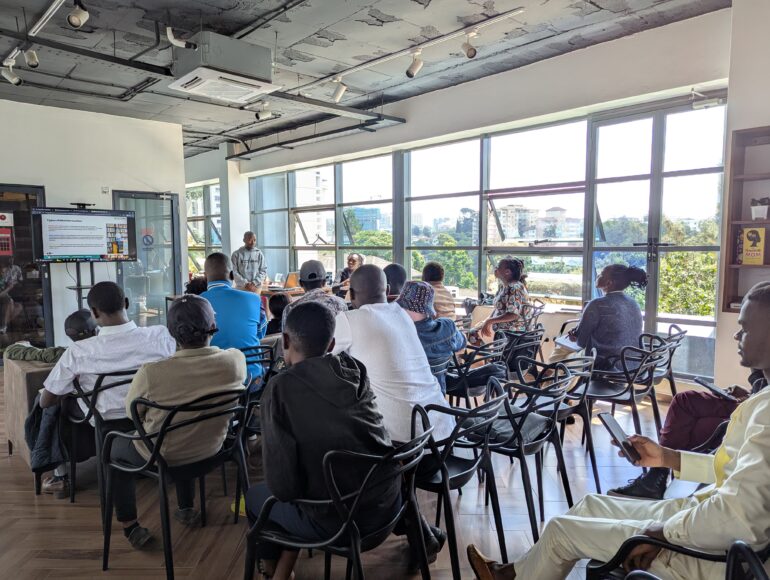On 27th of June 2025, we convened a one-day training on harmful speech at Baraza Media Lab in Nairobi, building on the momentum of previous sessions held in Mombasa and Eldoret under the Kenya Safe and Inclusive Digital Space (KenSafe) initiative. The training brought together a diverse group of digital content creators, bloggers, journalists, and online activists to unpack the growing concern of harmful speech in Kenya’s online spaces, and to collectively explore how best to mitigate it without infringing on the right to free expression.
As online platforms continue to evolve into powerful spaces for civic engagement and storytelling, they have also become breeding grounds for misinformation, hate speech, cyberbullying, and other harmful narratives. Recognizing this challenge, we curated the session to help media practitioners understand how online speech can both empower and endanger. The discussion centered not just on the content itself, but also on its intent, impact, and the responsibility that comes with having a platform.
“These trainings are not just about teaching people what harmful speech is. They’re about building a community of responsible digital citizens who understand the weight of their words. Our goal is to equip them with the tools and awareness to use their platforms ethically, challenge harmful narratives, and create safe spaces for dialogue. We want a digital Kenya where voices are free, but also conscious of their impact.”
The Nairobi training particularly drew heavily from insights shared in previous workshops, where participants acknowledged that Kenya’s online discourse has increasingly mirrored offline tensions particularly those rooted in ethnicity, politics, gender, and religion. Real-life examples were used to illustrate how a tweet, meme, or video can easily spiral into coordinated digital attacks or even fuel offline violence. Content creators were reminded of how quickly their platforms can amplify both helpful and harmful messages, often unintentionally.
In the training, participants were introduced to critical resources designed to support ethical and informed digital engagement. These included curated checklists for content verification, quick-reference guides for distinguishing between satire and disinformation, and real-time fact-checking tools used by professional media houses and watchdog organizations. Through interactive sessions, participants explored how to use platforms like Google Reverse Image Search, InVID, and fact-checking databases to verify images, videos, and news stories before sharing them further. They also engaged in practical sessions, reflecting on their own digital footprints and identifying moments where they may have unknowingly contributed to online toxicity.
To further support ongoing learning beyond the workshop, the trainers also shared other useful resources such as short explainer videos, and case studies from both local and international contexts to help creators and communicators regularly assess their own content, understand the digital regulatory environment, and craft narratives that are grounded in truth and empathy.
For many, the training was a turning point, providing not just information, but introspection. One participant shared how the training changed their perspective, noting that the ease of forwarding a message or responding in anger often masks the weight such actions can carry in a highly polarized digital climate.
The session closed with a reaffirmation of the need for collective responsibility. Harmful speech cannot be countered by individuals or organizations alone. It requires coordinated efforts by media, civil society, content creators, tech platforms, and everyday internet users.
Speaking during the training, David Indeje, Communication expert and BAKE trainer said, “Training on disinformation and hate speech is essential for content creators and journalists because it ensures the accuracy of published information, which is a key tenet of journalism, and helps maintain professional standards of fairness, accuracy, and responsibility when reporting or publishing on social media. Such training also protects against the erosion of trust in media and institutions and helps prevent the potential for real-society violence that can arise from the spread of harmful or unverified content.”
In a time where a single post can ignite or heal, divide or unify, these conversations are not only timely but necessary. Building a safe and inclusive digital Kenya is a shared task and it begins with what we choose to say, share, and stand for online.
Further, we plan to hold similar trainings in Nakuru and Kisumu to empower even more voices across the country.
